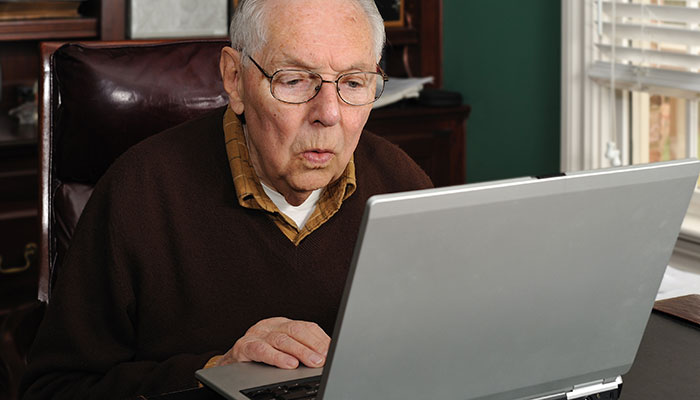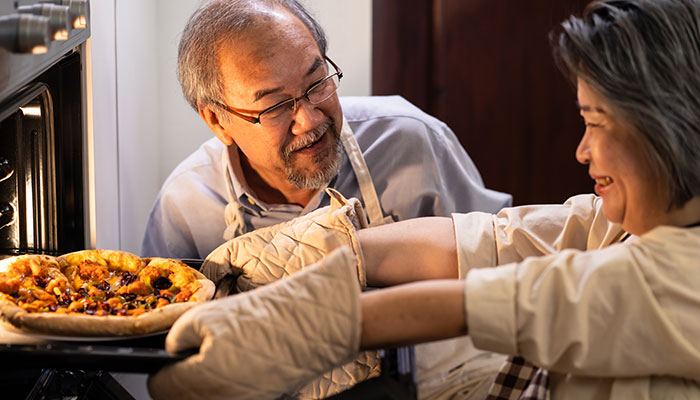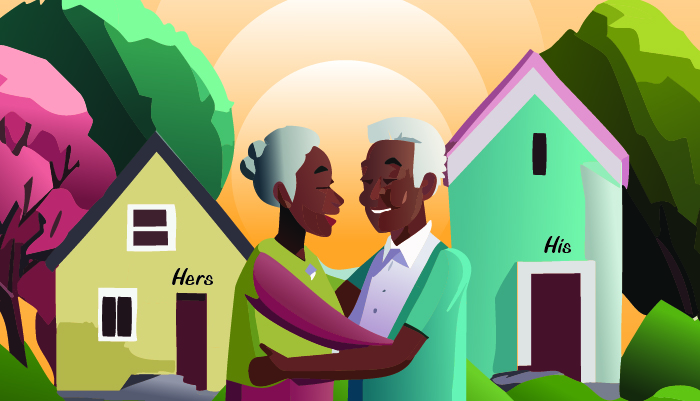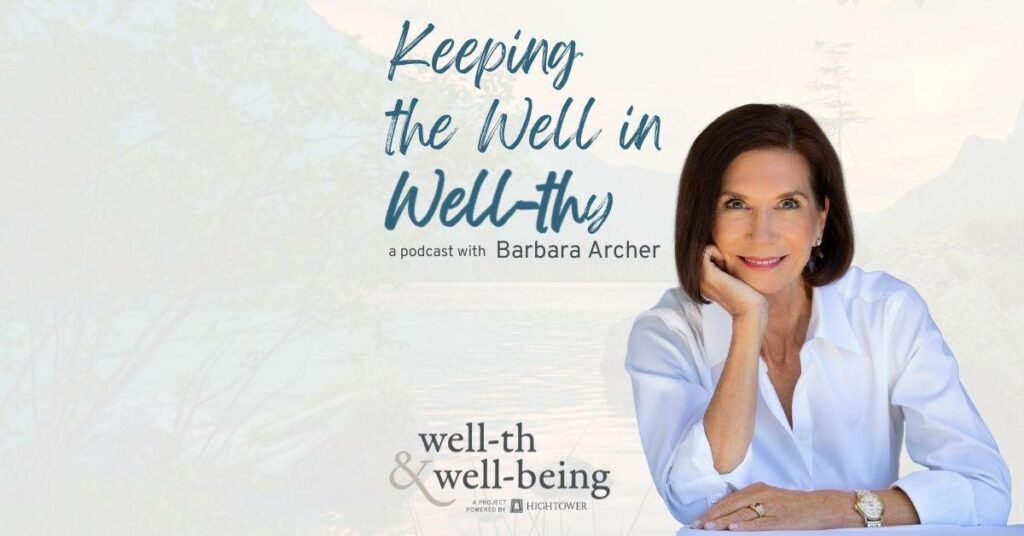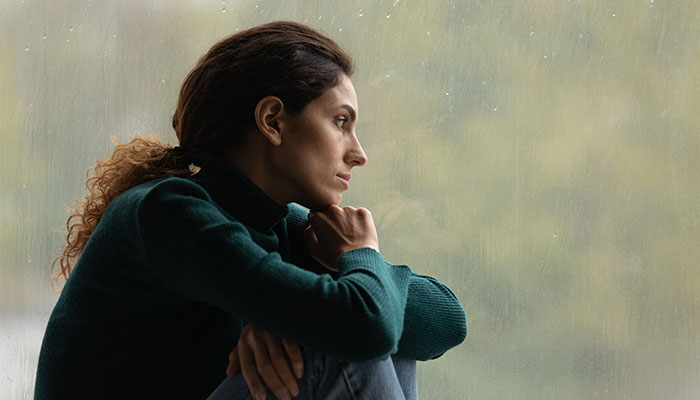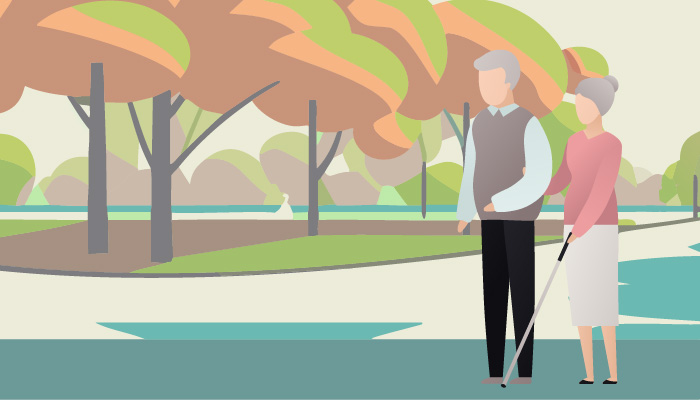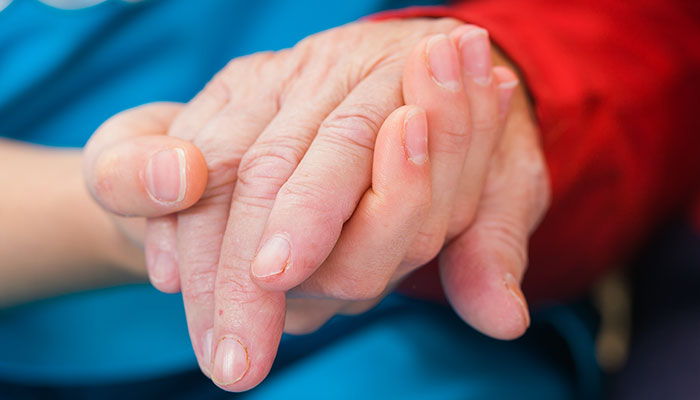Maybe it’s not Alzheimer’s
“Dementia” is not a diagnosis in and of itself. It describes a collection of symptoms that involve memory and thinking that are enough to interfere with daily life. Alzheimer’s is the most common cause, but there are many other reasons a person might have dementia symptoms. Most of the conditions that cause dementia cannot be…
Read MoreTech support for your relative(s)
Technology has done wonders to help us stay connected with family members. But beginning users have to learn new terms and skills. In-person classes are often available through senior centers or the library. And AARP’s AgeTech Collaborative offers online video tutorials and classes through SeniorPlanet.org. Even if you seek to provide less complicated devices, it’s…
Read MoreBurn and fire safety
Persons over age 65 are 2.6 times more likely than the general population to die in a home fire. That’s alarming! Older adults most often incur burns at home, typically when cooking or bathing. The most common burn injuries are from scalding hot water or flames. Many factors contribute to an older adult’s high susceptibility…
Read MoreLiving apart together
Can two households be better than one? In a trend called “living apart together” (LAT), a growing number of older adults are experimenting with committed relationships that also allow for autonomy. These are people who prefer intimacy and companionship in their lives. At the same time, marriage—or even living together—brings more entanglements than they want…
Read MoreKeeping the Well in Wealthy
Tune in to a new episode of Keeping The Well in Well-thy | Supporting a Loved One Diagnosed with Dementia with Susy Elder Murphy, BA, CMC Dementia manifests in a variety of ways. In its early stages, it can be easily mistaken for mere forgetfulness or the natural aging process. However, understanding its root causes can…
Read MoreEarly-onset dementia: Money issues
Finances are bound to be a concern if your spouse has received a diagnosis of dementia before age 65. As in many households, your partner’s job may cover important monthly bills. And perhaps essentials such as family health insurance or retirement funding. In the early stages, your partner may be able to reduce hours or…
Read MoreMaking the most of regret
Regret tends to be one of those emotions we’d prefer not to feel. Which is unfortunate, according to researcher Brené Brown. Her point is that “regret can be a fair but tough teacher.” If we don’t let regret mire us in the past—with self-blame and guilt—then we can use it to guide our future. Regret…
Read MoreActing as a “human guide”
If the person you care for has a low-vision diagnosis, you are likely concerned about their ability to orient themselves and learn to move safely without falling or becoming injured. Many people with low vision rely on the assistance of a “human guide.” You may already serve in that function for your loved one. Perhaps…
Read MoreSkin care and aging
The skin is the body’s largest organ and its essential “armor.” To maintain good health, skin needs extra attention as we age. The skin has three layers. Working together, they act as the body’s In the normal aging process, skin Daily routines are important in the care of aging skin. Help your loved one Check…
Read MoreMedicare: Wellness and prevention
If you are used to having an “annual physical” and ask for that, original Medicare won’t pay for it. That is, original Medicare won’t pay doctors to do a general physical exam “to see what turns up”; you’ll pay out of pocket. (Medicare Advantage might have this as an “extra.” Check with your plan.) Medicare…
Read More

